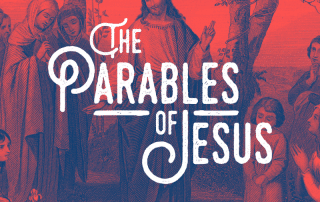Imaginative Practice | Luke 15:1-32
As you begin today, take a deep breath. I want to invite us into this story as if we were actually there, hearing these parables from Jesus for the first time. Try to imagine what you might be seeing and feeling. What thoughts would be running through your head? How would you respond? As we enter into this imaginative practice, ask God to show you how these words could speak to you today.
The crowds gather around Jesus. Swarms of people follow him everywhere he goes. I have heard of him, but I am skeptical. Is he really as great as people say? What makes him different? As a tax collector, I am used to being ridiculed, and overlooked. It’s true I haven’t always lived a moral and upright life. I’ve made many mistakes along the way and have been dishonest at times. As an outcast of society, I often feel like I am always being rejected. I wonder, will it always be this way?
Then this Jesus guy came along. Some of my buddies, fellow tax collectors and outcasts, seem attracted to him. They draw near to him everywhere he goes, even sharing meals with him. On this particular day, I decide to see what all the fuss is about. As I get closer, I see the crowds around him. There is tension in the air, as the religious leaders are also present. I hear grumbling and one of them mutters, “This man receives sinners and eats with them.” And then Jesus starts to speak. He speaks in these stories, but I quickly realize they have deeper meaning. The message he begins to share seems too good to be true. The shepherd pursues the lost sheep? The woman pursues the lost coin? Could Jesus actually be pursuing me? Do I matter to him? He says there is great rejoicing over even one sinner who repents.
Then he launches into his third story. That’s when it hits me. He talks about this younger son who has messed up and squandered his money. He has made some wrong turns along the way and finds himself at a really low point of his life. I can relate to that feeling, not knowing where to turn next. But this younger son comes to his senses. He realizes the gravity of his decisions and he decides to go home. Surely his father could never accept him, right? Perhaps as a hired servant, but never as a son. Maybe for a meal, but not ever as a member of the family. And then Jesus’ words stop me in my tracks. As the son was still a ways off from home, the father runs to him. He feels compassion, he embraces him, he welcomes him back into the family. Not as a slave, but as a fully established son. Before the son can finish his prepared speech, the father calls for a great celebration. Tears come to my eyes. Perhaps there is hope for me? Perhaps I too can experience this grace from Jesus? Maybe he will welcome me into his family? For the first time, I will belong. I will be home.
By Billy Berglund


